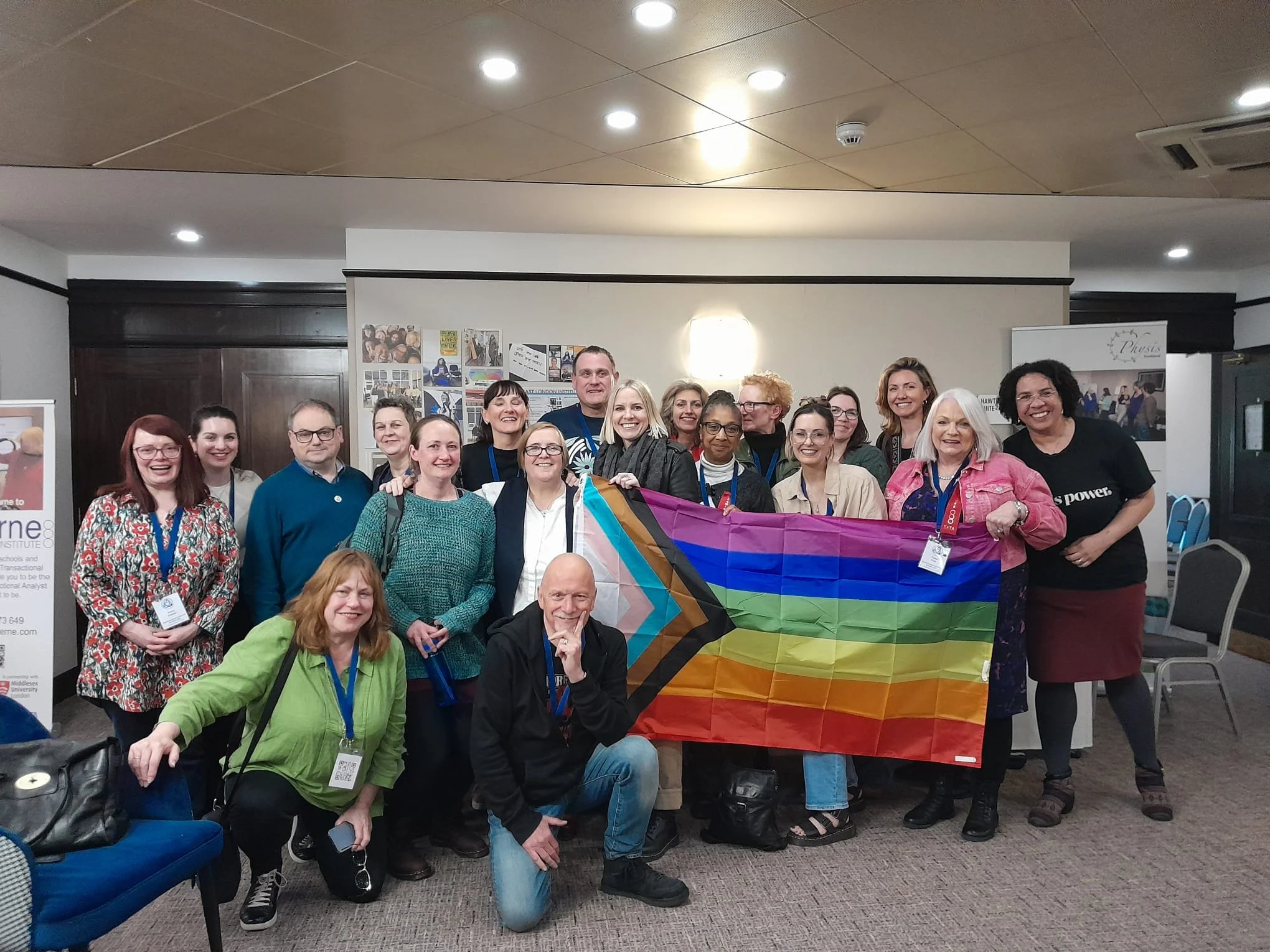TA East Values & Ethics
TA East is committed to social responsabilty, anti racism and anti oppression and what this means to us as counsellors, psychotherapists, trainers and supervisors. We aim to hold social conscious and political awareness as central to our training and practise.
Actively involved in the wider community.
Committed to making the training accessible and inclusive.
Informing ourselves of what is going on in the wider world.
Being willing to have our frame of reference challenged.
Actively promoting anti racism and anti oppression.
Being aware of the political practise of Counselling and Psychotherapy.
Vision to build TA East from the roots of the East London Community.
Commitment to evolving contemporary theory and practice.
Common mission statement of EATA and ITAA
Common Mission Statement Transactional Analysis is a psychological approach to understanding individuals, groups and community. The TA philosophy of equal relationship, mutual respect and engagement is expressed in the ethical values and principles of our organizations. This is relevant to our relationship with each individual and each organization as well as to the environment and to the world as a whole. Our TA organisations embrace sustainability and social justice as part of our personal, professional, and ethical choices. We are committed to a perspective that embodies, celebrates and accounts for interconnectedness, social responsibility and care for our planet.
Anti-Racism and Anti-Oppression Statement
TA East has a zero-tolerance toward racism and prejudice and all forms of oppression.
TA East recognises the existence of systemic oppression in the wider world and how internalised privilege and oppression sits within all of us. It is through meeting those parts and challenging ourselves, we will bring into awareness our unconscious bias, enactments of oppression and subsequently bring about change in relationship with each other and the outside world.
We will foster an approach to these dialogues with curiosity and empathy, through non-defended dialogue and radical openness.
• Affirming shared humanity and teaching deep respect for difference.
• Holding in mind intention alongside impact.
• Creating a culture of personal accountability.
We draw on the following citation from www.restorativejustice.org to support our position.
‘Of course, the premise we start from in any response to racism is zero tolerance: it is unacceptable, it is abhorrent. The trouble is, racism is everywhere, and cannot always be separated out, it must be detected ‘in and amongst’ other aspects of communication and relationship. Deeply embedded in UK cultures and structures, racism affects experiences and perceptions, the ways in which self and others are understood - or not. And it compromises the quality of education, what is learned and how it is learned. Following the murder of George Floyd and increased support for the Black Lives Matter movement, there is a chance of real systemic change. But new content for long-term cognitive learning, such as ‘decolonising the curriculum’ is only a part of the journey. While this may change perceptions over time, we need alongside such measures a more immediate means of improving the way people treat each other in our educational institutions. Pervasive inequality resides in social and emotional learning and in the culture of our schools and colleges. We must consider and question whether the traditional routes of policy and sanctions achieve the goal of tackling racism in education….
…embedded harmful attitudes and beliefs need to be addressed at their root, through exposure and a quality of personal challenge which can only be achieved through an ongoing relationship, not through a wagging finger and yet another punishment. Those will simply drive the attitudes and beliefs underground, to fester and grow.’
(cited from https://restorativejustice.org.uk/blog/zero-tolerance-and-tackling-racism-restoratively-uk-education)
Codes of Ethics
-
TA East trainers and students abide by UKATA’s code of ethics and professional practise policy.
TA East has been endorsed as a Registered Training Institute with UKATA. which will provides UKCP registration.
https://www.uktransactionalanalysis.co.uk/
-
TA East abide by the European Association of Transactional Analysis code of ethics.
Introduction
The EATA Ethical Code is intended to act as a guideline for national organisations affiliated to EATA and for each EATA member.
It is intended to help EATA members working in psychotherapy, counselling, organisational and educational fields to act ethically
Each national association has the task of applying it coherently to the deontological national code
Furthermore, this Code informs the public about what behaviour they can expect in these contexts from members of this Association.
National organisations, affiliated to EATA, assume the EATA ethical code and use it as a frame of reference to analyse specific situations for its members. Each EATA member needs to conform to it in his or her practice. If this is not the case, the National Associations will formulate sanctions
This code is in three sections
The official language of EATA is English… therefore the English version is the officially recognised version.
Section 1 is an introduction to the Code pointing out the basic perspective about Ethics
Section 2 is the core of the Code and explains the definition of fundamental values and related ethical principles
Section 3: This short section is designed to be a bridge to ethical practice.
EATA Ethical Code: Ethics code updated – February 13th 2012
This is the official English version of the code of ethics
-
https://www.psychotherapy.org.uk/media/bkjdm33f/ukcp-code-of-ethics-and-professional-practice-2019.pdf
-
https://itaaworld.com/professional-standards-practice-ethics/







